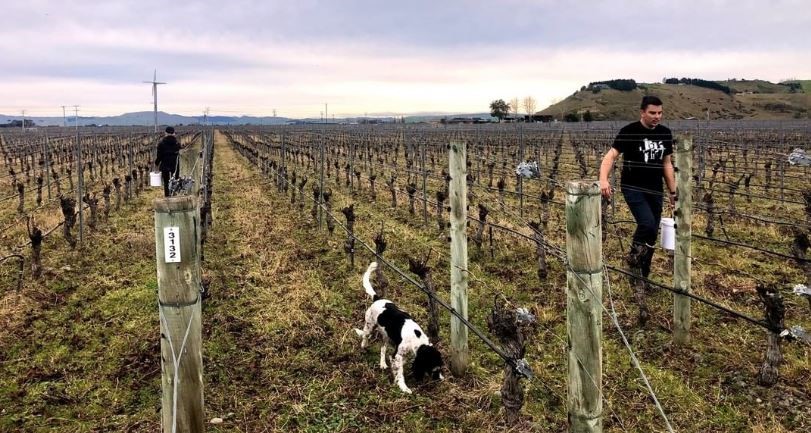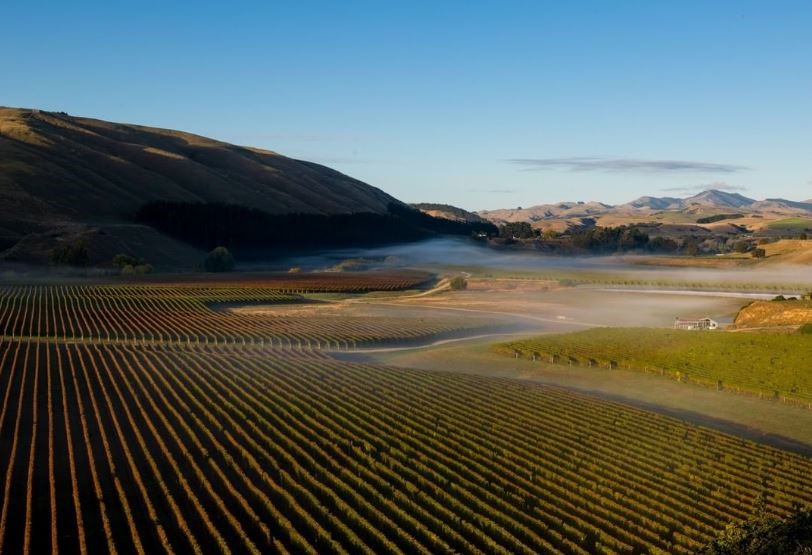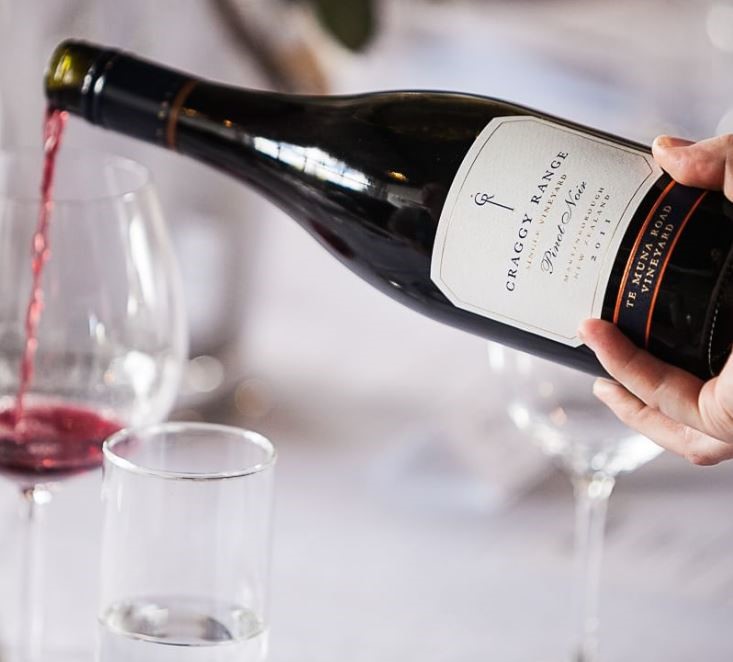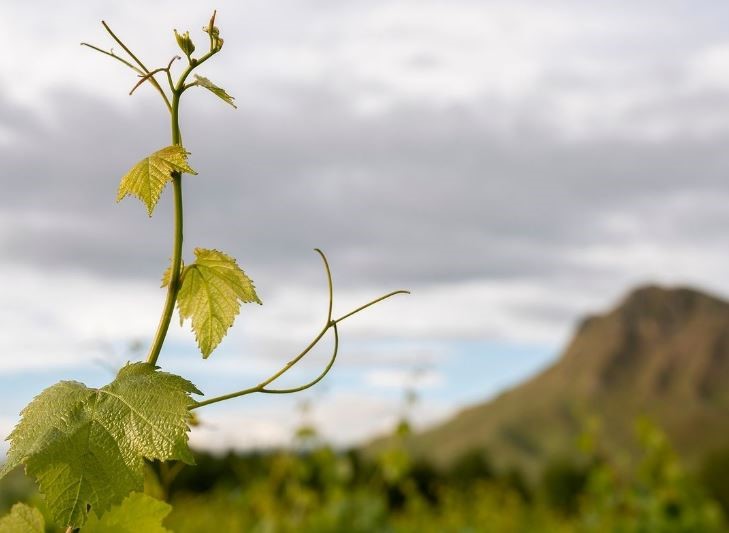Vivid Producer of the Month: Craggy Range
It is no secret that the word sustainability is one charged with meaning, relevance – and added responsibility. It is as complex as it is overriding, which is why it is essential to understand the appropriate steps – and timings – of those prioritising it. And Craggy Range is, by definition, an all-encompassing sustainable wine producer.
Established in the late 1990s, New Zealand’s Craggy Range has always been fiercely selective about their terroir-focused approach, and they have followed this method to this day to select unique parcels of land that would produce wines that spoke of their place. With the utmost respect for the land they farm, Craggy Range has had an uncompromising focus on quality since day one – something the team strives to demonstrate at every touchpoint, from their vineyards to their winemaking and visitor experience, as well as everything in between.

Economic sustainability – and commitment
“We are continually striving to improve, and this investment journey sees us continuously reinvest our growing profits into the evolution of our business, always striving to be an industry leader and advocate for our incredible region,” explains Venita Cox, brand manager at Craggy Range. This vision is sustained by a 1,000-year family trust, proving their long-term commitment. There is an eminent desire and need to look after their farm, the environment, and people.
While Craggy Range is certified sustainable by New Zealand Winegrowers, they aim to be much more than that, recognising the need to extend their work beyond official credentials. “We need to make sure what we do, positively impacts the people and the environment, not just sustain it.” Which is why 2020 saw the kiwi wine estate embark on an ambitious project. Native trees were planted across more than 100ha, within their vineyards in Martinborough, improving the biodiversity, and eventually, their soil’s health.
The addition of native plantings has apparent benefits for the vineyard monoculture. Still, it will further lead to improved wine quality, primarily due to increased natural yeast in the vineyard and reduced pest pressure, thanks to the rise in native birds. At this moment, this is the most extensive biodiversity programme in the New Zealand wine industry and hopefully an opportunity for New Zealand wine to continue to show leadership on a global front regarding sustainability.

Good grapes, good wine
Many cellar interventions are related to managing the indigenous microflora, weakening, or eliminating them, or simply compensating for the fact that they aren’t doing what they should. But suppose you start with great grapes, covered in micro-life, ones that have their fruit balanced with their acid and tannin. In that case, little additives will be required to make up for any imbalances in the winery – something that Julian Grounds, Craggy Range’s chief winemaker, lives by.
“The motivation for me is always how do we grow and make better quality wine and ensure we are protecting our resources. With the focus on an enhanced level of vineyard ecology and removing inputs that take away from the purity of expression, I see Craggy Range only increasing the level of expression and excitement in our wines into the future,” says Julian.
While the native plantings are exciting for the whole vineyard team, Craggy Range is also actively increasing its focus on organic farming. Having appointed Jonathan Hamlet, one of New Zealand’s leading specialists in organic viticulture, as national vineyards manager three years ago, they're making serious progress in organics – especially in cover crops and under vine management. Jonathan is the past chair of Organic Winegrowers New Zealand and has been on their executive committee since 2008.
“We don’t grow in isolation, nor do we want to. Improving biodiversity recognises the value and strength of the wider ecosystem,” says Jonathan. “A diverse growing environment is more robust and resilient, and, logically, we strive to create an environment that requires fewer inputs and ultimately benefits beyond our vineyards.”

Sustainability in the vineyard – a multistep process
This vision has led all vineyard practices for the past three seasons in both Hawkes Bay and Martinborough. With it, the team at Craggy Range have managed a selection of blocks organically to identify the benefits and challenges this system has for our production, giving them the confidence to implement a transitional plan to organic management of their grape production. In a two-stage approach, Craggy Range eliminates herbicide use in the vineyard, moving into organic canopy and soil inputs.
Currently, 30% of their Gimblett Gravels vineyard is managed without herbicides; and transitioning entirely to organic practices within the coming five years. And Craggy Range will have a similar approach to their vineyards in Martinborough – of which 40% will be tended to without herbicides by 2026.
“This move to organic vineyard management has shaped an extensive trial programme in our vineyards to be focused on techniques and innovations to support our sustainable management,” explains Jonathan. These trials include:
- The use of a sub-surface irrigation system to improve water efficiency and reduce vineyard water use. This potentially also reduces weed growth under the vines, which assists in using non-herbicide weed control.
- Under vine cover crop trial – this is to select potential species to grow under vines to produce a low maintenance sward to eliminate herbicide use.
- Cover crop trials – in the midrow:
- Growing plant species that can naturally add organic matter and nitrogen to the soil to reduce fertiliser use while maintaining vine yield.
- Growing flower species to improve biodiversity and beneficial insect predators to reduce insecticide use. The Gimblett Gravels vineyard has trialled flower species on the entire vineyard this season and reduced insecticide use by 25%.
- Biochar trial – using biochar mixed with compost to improve the soil's water and nutrient holding capacity to reduce irrigation and fertiliser inputs.
Community at the heart of sustainability
Craggy Range’s commitment to sustainability goes well beyond the environment. In an effort to contribute to their community they launched a charitable initiative in 2018, A Children’s Christmas. This ambitious new initiative is aimed at making a difference in the lives of children experiencing hardship across their community. “As a business with such long-term commitments, making a positive difference in the local community must be at the heart of what we do,” says Venita.
A Children’s Christmas Foundation was created in response to the alarming trend of child poverty, where an estimated 23% of Hawkes Bay children live below the poverty line. The Foundation strives to make a difference to the thousands of Hawkes Bay and Wairarapa children who might not otherwise receive a gift at Christmas.
“Since its inception, A Children’s Christmas has helped over 15,000 kids get outdoors, ease the transition back to school, keep warm in winter and make the most of summer. Kiwi kids love the water, and we are blessed to never be far from the sea, river or swimming pool in New Zealand, especially in Hawkes Bay and Wairarapa. Our schools do a fantastic job with their swimming programmes, and last year we wanted to ensure all kids have the gear they need to learn essential skills and stay water safe this summer.
“Kids love working with their hands, so this year we look to building futures, collaborating with our partners to bring a taste of the primary industries to the children of Hawkes Bay and the Wairarapa.”
You can see their 2021 wrap video: https://youtu.be/SEyyokf8kC4


